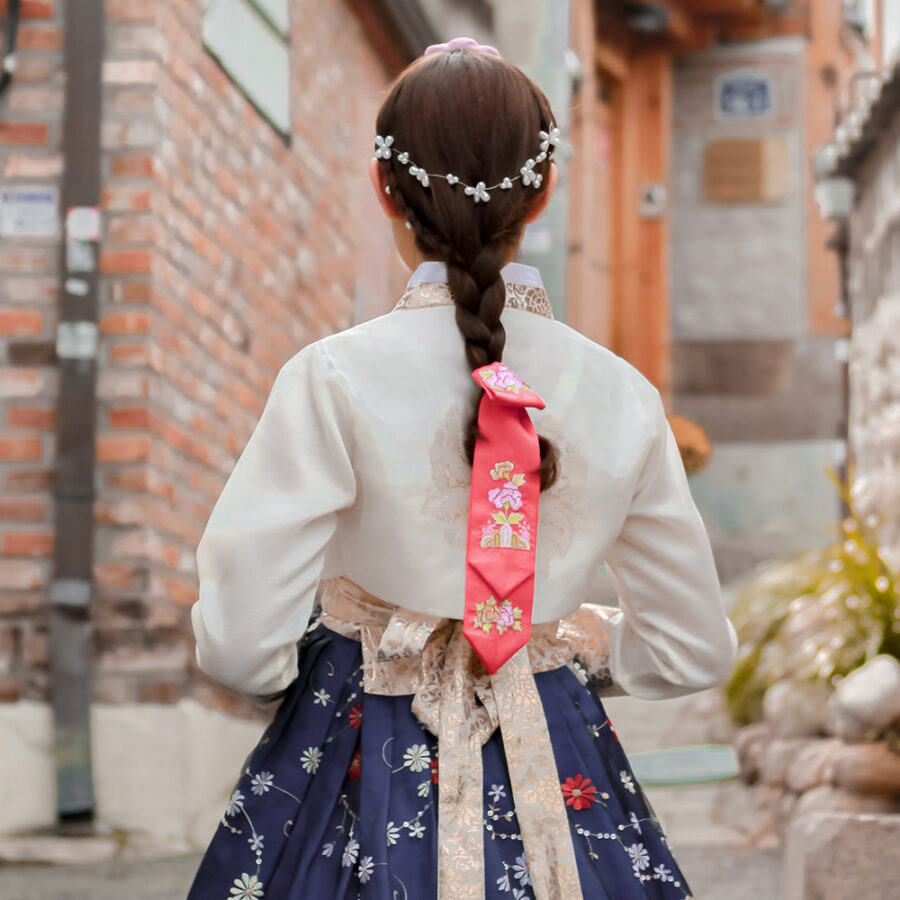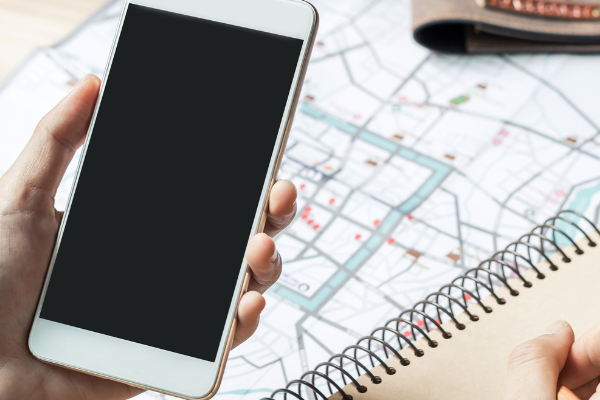So, you’ve decided you want to learn Korean. Fantastic choice! While it might not be the simplest language to learn, there’s no doubt that these days, learning Korean will open doors for you. South Korea is one of the world’s economic powerhouses, slowly opening itself to the outside world and attracting more and more international business and tourism by the year.
Whether you want to learn Korean for work purposes, for a dream holiday, or because you’re simply interested in the culture behind the booming Korean wave, you’ll probably have one goal in mind – learning Korean fast. Of course, everyone should learn at their own pace, and progress is all relative, but there are certain ways that can help you speed up your learning process and give you quality study time, rather than quantity. Follow our 5 simple steps to learn Korean fast, and you’ll be on the way to fluency in no time!
Key takeaways on how to learn Korean
- Korean is a helpful language to know both in your career and your personal life
- Despite the potential difficulty of the language, there are plenty of methods you can use to make the process simpler
- Ultimately, the most effective way to learn Korean is to travel to the country and immerse yourself in its culture and language
Benefits of learning Korean
- 1. It will help your career: Korea has exploded onto the scene of many industries, including tech, entertainment, and manufacturing. As such, bi-lingual Korean speaking employees are in high demand both within the country and in a variety of international companies throughout the world. Learning Korean will put you ahead of most candidates in the job hunt.
- 2. It’s useful: at the time of writing, Korean is natively spoken by around 80 million people, making it the 17th most spoken language in the world. By learning Korean, you will be able to communicate with a large portion of Asia and various communities throughout the world.
- 3. It will make travel easier: millions of travellers visit Korea each year to experience its unique culture, beautiful landscapes, and buzzing cities. When you learn Korean, you’ll see a side to the country that most travellers will miss and experience the country more like a local.
- 4. You’ll understand the culture: in recent years, Korean culture has grown in popularity worldwide through TV, films, music, and movies. Your language skills will be a window into this media, as you can understand the dialogue/lyrics exactly how the creators intended.
- 5. It will help you with your next Asian language: despite being a distinct language family in itself, Korean shares a great deal of vocabulary and grammar with the languages of its neighbours. If you plan on learning Mandarin or Japanese in the future, your Korean knowledge will certainly help you.
How to learn Korean in just five steps
Step one: Set your expectations and make a plan

So, let’s preface this article by confirming what you’re probably already thinking: Korean is a difficult language to learn. In fact, the US government categorises it as a “Category IV Language”, “super hard language” for English speakers … So, I guess it’s not worth the effort, right?
Well, no. Aside from being truly terrible advice for a language travel agency to give – it’s also not true! Just because it’s difficult doesn’t mean it’s unattainable – you just need to make a plan and taper your expectations.
It’s important to acknowledge that you won’t be learning Korean in as little as a month. Motivation is a key aspect in language-learning, so to make sure you have the self-drive you need to keep going, set yourself small goals along your Korean learning journey. Tailor your goals to your learning style – do you want to have memorised a certain number of vocabulary sets? Do you want to have mastered the future tense? Or do you want to have achieved a certain level, such as A1 or A2 Korean in a certain time?
Once you have established your short-term goals, you’ll have something to work towards which is smaller than an entire language itself. You’ll soon see how you can learn Korean fast this way – by motivation and dedication to the smaller things!
Step 2: Learn the basics

When deciding how to start learning Korean, it’s important to begin with the basics and work your way up. This will both give you a strong foundation to work on and also build your confidence to help you move on to your next steps. To make it just a little easier, let’s split the basics into three distinctive categories:
- The Hangul alphabet
- Numbers
- Simple vocabulary
It might seem obvious, but the first step towards learning Korean often seems the most daunting. Learning a brand new alphabet system can be scary, but the great thing about Korean is that you can learn hangul (the Korean writing system) in a day if you really set your mind to it!
While to begin with, hangul might just look like a series of lines, it’s the easiest part of learning Korean. Hangul was specifically invented to be simple to learn, designed so that everybody could learn to read and write – even those who had little access to education. Hangul is entirely phonetic, so once you’ve learned the symbols for the 14 consonants and 10 vowels, you’ll be able to read anything in Korean! The faster you get away from romanisation, or Korean phonetically spelt in your native language, the better.
Once you’ve got hangul down, start practising those reading skills. It won’t matter at this stage if you don’t understand the words you’re reading, but getting used to reading the new language and making the sounds come to life is a key step towards familiarity. The more you read and practise, the less ‘foreign’ Korean will become as a concept. Use film posters, children’s books, online newspapers, or simply South Korea’s version of Google – Naver – to get your daily practice in. It doesn’t matter what reading material you choose, just make sure you do it aloud!
As for numbers and vocabulary, this really comes down to your preference! You can start by learning 1-100 or just 1-10. You can also learn the entirety of your travel phrase book or just a simple “hello” and “goodbye”. Either way, once you feel comfortable, it’s time to…
Step 3: Use digital resources

Once you have your basics covered, it’s time to challenge them with their first hurdle: a language app.
While not as effective as a human language teacher (we’ll get to that!), this option is usually free and offers a simple, fun, and quick way to pick up a decent portion of a language without much of a commitment.
Your language app will let you grow your vocabulary in an engaging setting and slowly grasp the grammar rules that hold it all together.
What’s more, thanks to modern technology, you have a wealth of native Korean speakers at your fingertips! The goal here is to use the Internet and applications to seek out Korean learners, or native speakers who’ll give you the chance to practise as and when you please. Conversation can be daunting at first, so get some practice by seeking out Korean forums online, or by browsing Instagram to check and add to the comments section.
Once you feel ready to start conversing in Korean – even if it’s just the basics – use apps such as Hellotalk, which pairs you with native speakers around the world to exchange messages, send voice notes, and arrange calls together if you’re quite the conversationalist.
If you’re lucky enough, you can bring this online conversation practice into the real world. Check in your area to see if there are any language exchanges to sign up to, or if there are any conversation clubs you can attend. The more you speak, the more confident you’ll become, and you’ll be on your way to learning Korean fast.
Step 4: Embrace Korean culture

If you’re reading this article, it’s likely that some part of Korean culture has inspired you enough to learn the language, and we can’t blame you – Korean culture is fascinating and has spread across the world at lightning speed!
Whether it’s the compelling TV, the catchy music of K-pop, the unique and delicious food, or the rising stars in cinema – Korean culture has become a common feature of many countries. By consuming Korean media, you’ll learn how to use your newfound skills in real settings, train your ear to hear it, and how words are pronounced by native speakers. Here are our favourite methods to pick up the language through its culture:
- Research and follow a selection of Korean news sites – giving you a regular flow of exposure to the language and helping you learn more about your favourite country!
- Watch the major Korean sensations on Netflix with the subtitles on (or off if you’re feeling brave)
- Listen to K-pop or similar music genres which mix both English and Korean words.
- Find the original Korean recipes for your favourite traditional Korean dishes
- Watch your favourite movies/series in your native language with Korean subtitles
Step 5: Travel to Korea

Lessons in your home country can help you with grammar and punctuation, and series and music can help you with pronunciation and vocabulary – but you can only become a confident speaker of Korean by living it!
To be clear, travelling to Korea is not something you have to wait for – we recommend you familiarise yourself with the language to a certain extent beforehand, but it really can be done at any step in your language journey.
When you travel to Korea, your daily life will become a language lesson, as you’ll need to navigate situations by relying on your language skills – even if you’re a beginner! While this may seem intimidating at first, it’s also incredibly rewarding, as your results are no longer just marks on paper – they’re now showing up in your life!
What’s more, if you travel to Korea with ESL, you’ll be able to experience this metaphorical “language lesson”, with actual high-quality language classes. In these classes, you’ll learn language skills which you can use in your daily life while making friends to explore the country with. Essentially this is your chance to combine a once-in-a-lifetime holiday with unbeatable language progression.
Does that sound good to you? Check out our programmes in Korea to try them for yourself
How to learn Korean: frequently asked questions
How long does it take to become fluent in Korean?
As with most languages, the time it takes for you to master Korean can vary from learner to learner. The general estimate is around three months of consistent study to reach business proficiency and multiple years to become fluent – depending on how much you immerse yourself in the language.
Where can I travel to learn Korean?
Korea is full of incredible cities for you to explore and practise your language skills, and due to its advanced travel network, you’re not stuck in one place for long! When choosing where to stay in Korea, we would recommend either the futuristic metropolis of Seoul or the traditional coastal city of Busan.
Do I need to learn Korean before visiting Korea?
In short: no, you don’t need to, but it helps. Korea is a very modern and increasingly international country, with millions of foreign visitors per year – as such, you should be able to communicate in English within the cities. However, learning even a basic level of Korean will make a huge difference to your experience, as locals will appreciate your efforts and you’ll be able to understand more of what you’re seeing. If you learn Korean while in Korea, you’ll be able to ask your teacher about things you’re experiencing, so you can put it in a better context and learn even more!



What do you think?